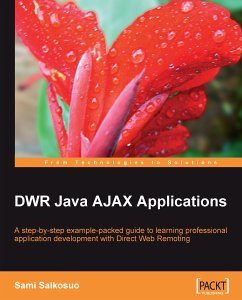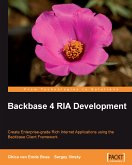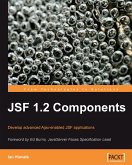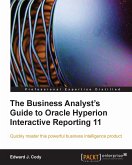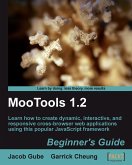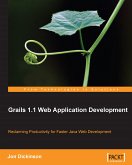In Detail
AJAX enables rich desktop-like user interfaces in the browser and enables interactive interfaces that can even replace traditional user interfaces. DWR (Direct Web Remoting) is an Open Source Java framework for building AJAX applications. DWR's main idea is to hide AJAX implementation details, like XMLHttpRequest, from developers. By using DWR, you can concentrate on developing the application and business objects and leave AJAX details behind the scenes where they belong. DWR allows server-side Java classes to be used in the browser and JavaScript functions to be used on the server (Reverse AJAX).
This book will show competent Java programmers how to work with DWR to create powerful AJAX applications. It starts with a tutorial on DWR's main features and functions. Then it covers setting up the development environment. Finally, it concludes with some sample applications.
The later chapters are full of example code for sample applications, to aid comprehension.
This book covers all the theoretical and practical knowledge required for working with DWR. The book is packed with code and graphics with step-by-step explanations.
Approach
The initial part guides the reader through the features of DWR and how it works to make the developer ready for practical implementation. The later part contains plenty of code (with explanations) and graphical interface-driven step-by-step examples, which the reader can try out while surfing through the book to learn by doing.
Who this book is for
This book is written for competent Java developers and assumes that you are a professional rather than hobbyist. You should be familiar with the concepts of programming, Web 2.0, and AJAX.
Hinweis: Dieser Artikel kann nur an eine deutsche Lieferadresse ausgeliefert werden.
AJAX enables rich desktop-like user interfaces in the browser and enables interactive interfaces that can even replace traditional user interfaces. DWR (Direct Web Remoting) is an Open Source Java framework for building AJAX applications. DWR's main idea is to hide AJAX implementation details, like XMLHttpRequest, from developers. By using DWR, you can concentrate on developing the application and business objects and leave AJAX details behind the scenes where they belong. DWR allows server-side Java classes to be used in the browser and JavaScript functions to be used on the server (Reverse AJAX).
This book will show competent Java programmers how to work with DWR to create powerful AJAX applications. It starts with a tutorial on DWR's main features and functions. Then it covers setting up the development environment. Finally, it concludes with some sample applications.
The later chapters are full of example code for sample applications, to aid comprehension.
This book covers all the theoretical and practical knowledge required for working with DWR. The book is packed with code and graphics with step-by-step explanations.
Approach
The initial part guides the reader through the features of DWR and how it works to make the developer ready for practical implementation. The later part contains plenty of code (with explanations) and graphical interface-driven step-by-step examples, which the reader can try out while surfing through the book to learn by doing.
Who this book is for
This book is written for competent Java developers and assumes that you are a professional rather than hobbyist. You should be familiar with the concepts of programming, Web 2.0, and AJAX.
Hinweis: Dieser Artikel kann nur an eine deutsche Lieferadresse ausgeliefert werden.

